Dancing after deployment: Marine aims to mend veterans' minds with motion
On a recent fall night, an unusual mix gathered at DANY Studios in Manhattan: A line of professional dancers warmed up while a handful of war veterans hesitantly followed along.
It was just the sort of seemingly incongruous collection that Roman Baca seeks to create and, as both a former Marine and classically trained dancer, one that he embodies.
"They're very similar," said Baca, laughing, when asked about the juxtaposition of military and dance.
"My dance training prepared me very well for boot camp. It took me to boot camp physically fit, used to discipline and rigor."
When Baca returned from serving in Iraq, he said, he had trouble getting back into the swing of civilian life.
"And so my girlfriend at the time suggested that I reconnect with art in order to kind of find myself," he said.
Baca now seeks to help other veterans do the same through his dance workshops, mending their minds by moving their bodies.
- Video: Helping veterans dance after war
- Slideshow: Finding comfort through movement
- More: Celebrating our heroes
"It's a courting process," said Baca. "They start out very, very hesitant, not knowing what's involved."
He pairs the former soldiers with members of his Exit12 dance company.
The contrast is not lost on the veterans.
"Roman said relax," said Everett Cox, who served in Vietnam. "I don't think I've ever learned to relax. It's an alien concept to me."
"And yet I'm with these dancers who seem relaxed in every movement."
For some of the veterans, it's foreign and yet familiar.
"To have someone else in charge of my body reminded me of being a Marine," said Jeff Key, an Iraq war veteran, referring to an exercise in which the veterans closed their eyes while the dancers directed their movements.
"When you're a Marine and you're being sent off to war, someone's in charge of your body, your life," he said. "You've given your body away."
The workshops aren't formal training or official therapy. But Baca believes that even simple gestures - a bend, a turn, a step - can help those who served ease the wars inside.
"They can communicate in any way that means something to them," said Baca. "And then they can just let it go."
Afghanistan veteran Kristen Rouse admitted that she was not only new to dance but also not someone who usually leaves her comfort zone. And yet, she said, Baca's workshops provide the kind of non-judgmental atmosphere in which she feels she can move in any way she likes.
"As Roman says, there's no wrong answer," said Rouse. "And if I do something weird, that's my thing that's weird. And it's mine."
As the workshop progressed, the movements became more natural. The veterans did appear to relax, and some even cracked a smile as they performed for the rest of the group.
"All these things help me to move into another world," said Cox, "a world that's so different than I kept inside of me for so long."
It's a novel approach that Cox hopes will one day be more widely available to other veterans.
"They really need to find some alternatives, alternatives to psychotherapy, alternatives to pills, alternatives to hospitalization," Cox said.
"They need to give people a chance to dance."
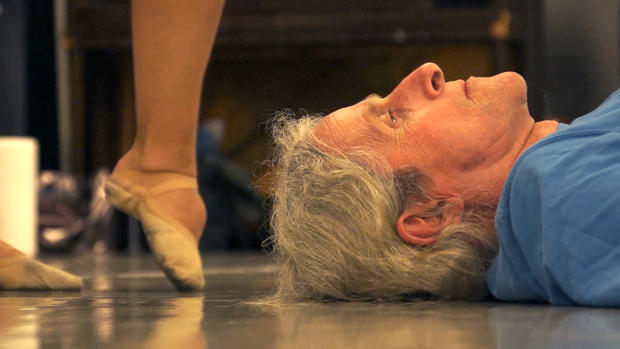
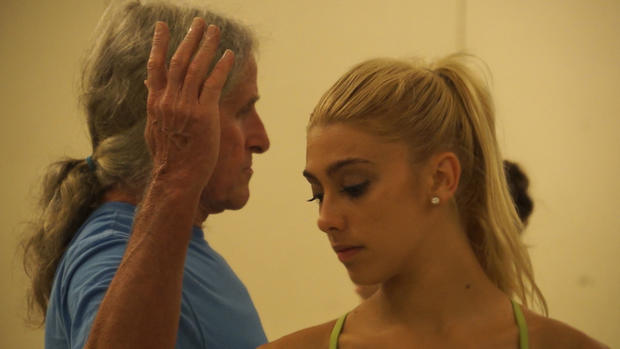
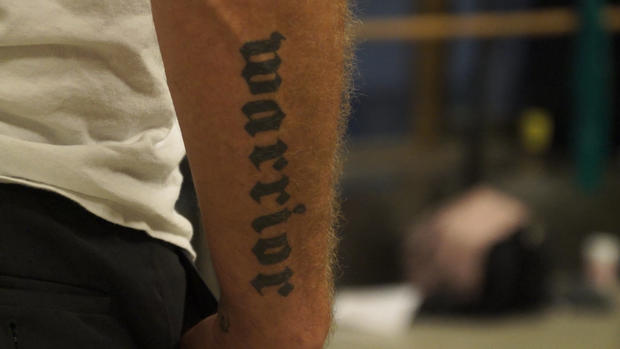
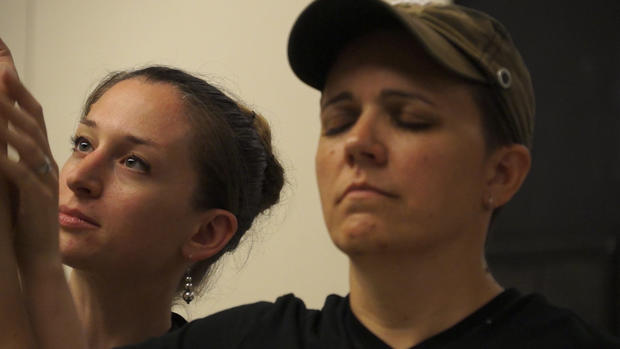
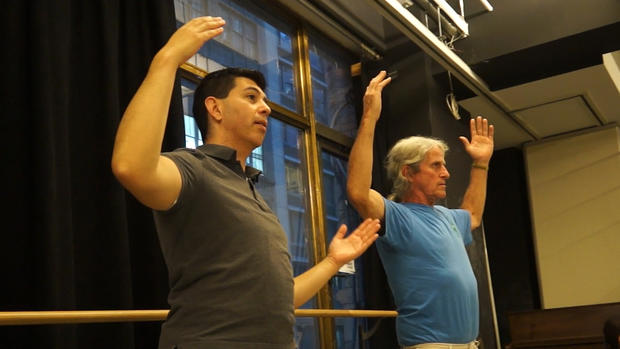
.jpg?v=55c0f85ebcd2b956528d9c6f5a7e8871#)